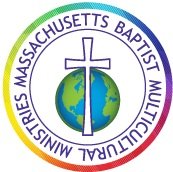Mission
THE MISSION OF MBMM IS TO ADVOCATE, CELEBRATE, AND EMPOWER (A.C.E.) ETHNIC CHURCHES, PASTORS, AND NEW AMERICANS FROM DIFFERENT PARTS OF THE WORLD. WE PROMOTE AND SPEAK THE LANGUAGE OF LOVE. OUR WORK IS WEAVING GOD’S LOVE ACROSS CULTURES.
ADVOCACY
MBMM works at the grassroots level with refugee communities in the areas of advocacy. Our goal is that refugees seamlessly achieve a path to self-sufficiency, inclusion, and become active citizens in their new communities. We are active in Somalian, Congolese, Burmese, Bhutanese, and Iraqi refugee communities in the Middlesex and Suffolk counties.
MBMM Refugee Advocates are doing substantial work. They help:
Form ethnic community groups
Provide basic living supplies such as household goods and clothing
Navigate complex American institutions (State, Federal, Legal, Medical) to obtain services
Deliver programs to increase refugees' self-sufficiency and civic engagement
Network with civic bodies and churches to help them understand and appropriately welcome refugees
Teach practical skills, and provide training on violence prevention, cultural adjustment, etc.
Serve as conduits between the refugee resettlement agencies and landlords to facilitate housing and services received from resettlement agencies
They provide invaluable support and services to hundreds of individuals and families in their target communities. MBMM works with and through its Refugee Advocates and Cultural Advocates from countries across the globe who are now settled in the greater Boston area. These refugees and immigrant families face an uphill battle in almost every respect. They often arrive tired, confused, hungry, and frightened. Many flee their home country because of military atrocities or civil wars and because of these experiences they are afraid to trust anyone in uniform (i.e., police) or positions of authority.
Most of the refugees and immigrants are placed in inner city low-rent buildings that provide little to no insulation against the harsh New England winters and have neither the knowledge of how to dress for extreme cold nor the resources (heavy coats, boots, gloves, etc.) to do so. The conditions make refugees, particularly the young, vulnerable to drugs, gun culture, and prostitution.
Social adaptation proves to be an equally challenging task. Suicide rates among the refugee population, particularly adult refugees from Bhutan, are very high mainly because they find it difficult to live in an insular, individualistic fast-paced society. The communitarian lifestyle that has been their support system and cultural standard often cannot be practiced in modern urban American cities. For example, the lack of a car, distance from their cultural community, and harsh winters make it difficult to even visit neighbors. This often deepens depression.
CELEBRATION
MBMM believes that cultural diversity requires recognition, acceptance, and celebration. Gathering together in welcoming multicultural events that celebrate distinct traditions, ethnicities, and identities from around the world. Annually hosting the New American Christmas Parties, the summer Multicultural Festival, Intercultural Conferences, Annual Meeting, and Banquet. MBMM respects and celebrates distinctive cultures through: Music, Dance & Art, and Cuisine. Additionally, celebration is working with interfaith groups and the inclusion of other faith practices in cultivating an embracing community.
EMPOWERMENT
Empowering programs and services provide value and translate directly into a benefit: Adult Literacy Programs, Tutor training initiatives, English as a Second Language training (ESL), After School Programs, Drivers Education, Citizenship Classes, coaching of immigrant leaders including pastors, and Leadership Development workshops. MBMM strives to empower New Americans, this loving action, is to give them a priceless gift.
Wherever the lost, least, and left behind families are ignored by the larger society, systemic and deepening problems permeate that entire society. This result, not only in the oppression and suffering of refugee families, extends into the suffering and decline of surrounding families in the community. In this case, the suffering of refugee families increases crime, lowers median education, inflames cultural resentment and isolation, and creates numerous health risks for all. MBMM works tirelessly to prevent this oppression and suffering by providing programs aimed at empowering. When these families successfully integrate into the broader context, all families benefit from the cultural enrichment and larger sense of community created.
